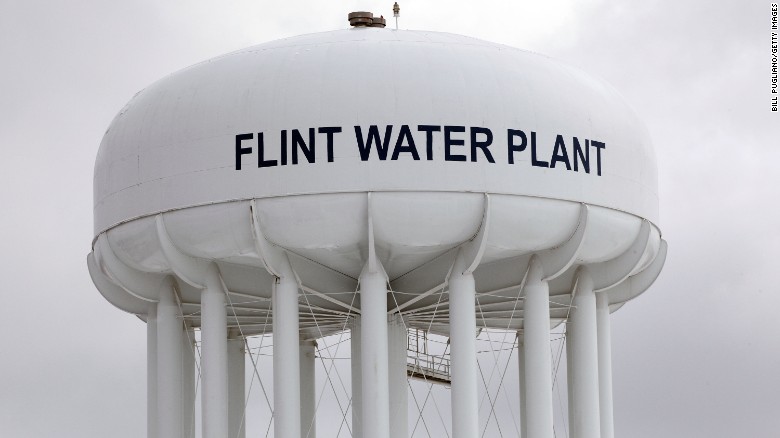Words By: Chazre Hill
You turn on your water to give your baby a bath. The water is light brown, the color of brewed tea, and gives off a strong odor. But your infant needs to be cleaned so you decide to use the water anyway. After daily usage of this water, your baby begins to develop dark, dry spots resembling sandpaper on his face and arms. No, this is not a third world country. This is the city of Flint, Mich.
Flint, Mich. and its citizens, population slightly under 100,000 people, have been in the public eye after chemical tests taken in Oct. 2015 revealed that there was corrosion in the water pipes and elevated lead levels.

Florida A&M University students Andrea Pugh and Alanna Weaver are both from Mich. Pugh, from Saginaw and Weaver from Flint. Weaver’s mother, Dr. Karen Weaver is the current mayor of Flint. Weaver, the senior psychology student and Flint native found the water crisis to be disappointing and ironic.
“We’re surrounded by the great lakes, all of this fresh water, and we are the only city that has bad water,” Weaver said. “It doesn’t make sense.”
It derived from the 2014 shift of Flint’s water supply coming from Detroit, Mich. moving to the Flint River.
“Once the switch to river water was made, the city, which was operating under a state-appointed emergency financial manager, faced one problem after another,” The Detroit Free Press reported. “Residents packed city council meetings and held protest marches to voice their anger about water quality.”
A team of Virginia Tech University researchers were the first to investigate the dangerously high levels of lead in the water pipes in Flint, Mich. They began their research in January of 2013.
They have been tracking the findings on FlintWaterStudy.org. Their purpose was “To support citizen scientists concerned about public health by empowering Flint residents and stakeholders with independent information about their tap water.”
One of the research team’s biggest findings was the water contained 25 parts per billion of lead. That is over the Environmental Protection Agency limit of 15 ppb. According to the Agency for Toxic Substances and Disease Registry, “Lead exposure may also cause anemia. At high levels of exposure, lead can severely damage the brain and kidneys in adults or children and ultimately cause death.”
Andrea Pugh, a senior environmental science student from Saginaw, Mich. is aware of the problems that lead can bring.
“The whole generation of children that are coming up and being exposed to this lead are going to have a lot of different health challenges,” Pugh said. “It’s not like anything else you can’t just get a shot get the lead out of your system.”
Researchers and columnist have wondered how big of a role does race and economic status play in the slow support efforts. Thinkprogress.org reported that there are 51 percent African Americans in Flint and 41.5 percent live below the poverty line.
Weaver agrees with columnist that race played a big part in the water crisis.
“If we were in somewhere where there’s mostly rich people, I don’t think this would’ve ever happened,” Weaver said. “But since most people in Flint are poor and black, we’re at the bottom.”

Pugh believes that the government utilized a voiceless demographic to take advantage of.
“It was more so placing the burden of the water switch on those that would be least likely to have the voice to speak up,” Pugh said.
Mayor Karen Weaver has been adamant about making changes to improve the conditions of Flint, Mich. At a press conference on Feb. 2, “These lead pipes have got to go,” and that she is “Morally Obligated” to act. Mayor Weaver has urged the governor to declare a state of emergency and has spoken with President Barack Obama and urged him to donate $80M to the relief efforts.
Mayor Weaver’s daughter, Alanna is proud of all of her mother’s efforts in her hometown.
“She [Mayor Weaver] got the word out. If we were to have our old mayor we would’ve still been in the same situation,” Weaver said. “My mom just got in office and that was her first thing to do, get our water right”
Across the nation, there have been donations of water and money to the citizens of Flint. Recently, there was a Virginia church that donated to 47,000 bottles to Flint according to a Virginia CBS affiliate.
Pugh agrees that though water bottles are great, the best thing to have is education and educate others.
“Flint never expected to turn into a third world country overnight, so it can happen anywhere. Continue to educate yourselves and your community,” Pugh said.














